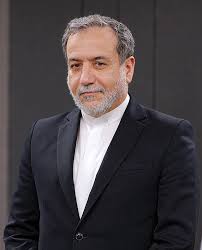By Atoyebi Nike
Iran’s Foreign Minister Abbas Araghchi has landed in Turkey to participate in a high-level diplomatic summit convened by the Organization of Islamic Cooperation (OIC), where the central agenda will be Israel’s recent military strikes on Iranian soil.
According to Iranian state-affiliated Tasnim news agency, Araghchi confirmed that the Israeli assault on Iran described by Tehran as a “violation of sovereignty and regional stability” will be raised as a core issue during the weekend meeting. “At this meeting, at the suggestion of Iran, the issue of the Zionist regime’s attack on our country will be specifically addressed,” Araghchi reportedly stated upon his arrival.
The emergency summit in the Turkish city, expected to draw about 40 diplomats from member states, comes at a moment of heightened tension following days of missile exchanges between Israel and Iran. Iran has framed its response to the Israeli aggression as a matter of national and regional security, insisting it acted within its right of self-defense.
While much of the geopolitical discourse is centered around military maneuvers and nuclear anxieties, civilians across the region continue to suffer the brunt of the fallout. In both Iran and Israel, airstrikes have triggered panic, disrupted livelihoods, and led to casualties, including non-combatants. Iranian officials have accused Israel of targeting not just military infrastructure but also civilian zones claims that are likely to feature prominently in Iran’s address to the OIC.
The OIC gathering signals an attempt by Muslim-majority nations to craft a coordinated stance on the crisis, one that could influence diplomatic channels beyond the Middle East. Turkey, playing host, has also called for restraint and urged international actors to prevent further deterioration of regional security.
As the meeting unfolds, eyes will be on whether a unified position emerges from the Islamic bloc and whether it will translate into concrete diplomatic or economic actions. More importantly, the voices of civilians caught in the crossfire from families displaced in Isfahan to residents sheltering in Israeli towns will linger in the background, a sobering reminder of the urgent need for de-escalation.
